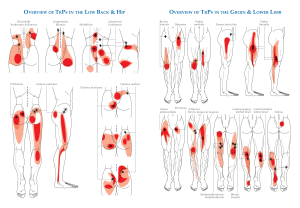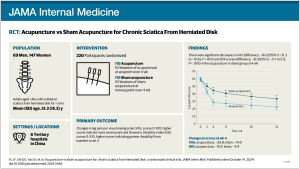Sciatica Relief in Minutes: Is it Possible?

, which causes pain that shoots from your lower back through your buttocks and down the leg, can be really debilitating. The good news is that there are several methods you can use to help find relief in just a few minutes.
Sciatic Relief in Minutes
- Gentle Stretching
Stretching is one of the most effective ways to alleviate sciatica pain quickly. Here are some techniques you can try:- Knee-to-chest stretch: Lie on your back, bend your knees, and bring one knee to your chest while keeping the other foot on the floor. Hold for 15-30 seconds and repeat with the other knee. This stretch helps relieve tension in the lower back and buttocks.
- Piriformis stretch: Sit on a chair and cross one ankle over the opposite knee. Lean forward gently, keeping your back straight until you feel a stretch in the buttock of the crossed leg. Hold for 15-30 seconds and switch sides.
- Cat-cow stretch: Start on all fours, arch your back while looking down, then lower your belly and look up. Repeat for 8-10 breaths to help relieve back tension.
- Heat and Ice Therapy
Applying heat or ice can provide immediate relief from sciatica pain.- Heat therapy: Place a heating pad or hot water bottle on the lower back or buttocks for 15-20 minutes. Heat helps to relax tense muscles and improve blood flow.
- Ice therapy: Use an ice pack on the painful area for 15-20 minutes. Ice can reduce inflammation and numb the area, providing quick pain relief.
- Massage Therapy
Massage can lessen sciatica pain by targeting tight muscles and improving circulation.- Self-massage: Use your hands or a massage tool to gently knead the muscles in your lower back, buttocks, and legs.
- Therapeutic massage: Consider booking a session with a licensed massage therapist for more targeted relief. They have the expertise to apply specific techniques to effectively address your pain points and help you feel better faster.
- Low-Impact Exercise
Certain yoga poses can stretch and strengthen the muscles around the sciatic nerve. Pigeon pose, downward-facing dog, and bridge pose may help relieve sciatica pain.
A brisk walk can improve blood circulation and help loosen tight muscles. Aim for at least 10-15 minutes of walking at a moderate pace. - Proper Posture
Maintaining good posture can reduce pressure on the sciatic nerve.- Sitting: Sit with your back straight and feet flat on the floor, and avoid crossing your legs. Use a small pillow or lumbar support to maintain the natural curve of your spine.
- Standing and lifting: Keep your spine neutral, bend at the knees, and avoid twisting when lifting objects.
- Medications for Sciatica Pain Relief
Nonsteroidal anti-inflammatory drugs (NSAIDs) like ibuprofen and naproxen can help reduce inflammation and alleviate pain. These are available without a prescription and are often recommended for short-term use.
Topical analgesics such as over-the-counter lidocaine can provide localized pain relief by numbing the affected area.
What If My Pain Isn’t Getting Better?
While these techniques will help you find relief if you have a flare of pain from the sciatic nerve, sciatica can be much longer lasting. It’s important to seek professional care if you’re experiencing frequent pain over time.
A neurosurgeon or physiatrist will conduct a thorough physical examination and order imaging tests like an MRI or CT scan to find the exact cause of your sciatica. Based on the results, they can recommend treatments such as physical therapy, medications, and lifestyle changes and even assess if surgery is needed to relieve pressure on the sciatic nerve.
Don’t hesitate to seek professional help if your sciatica pain persists or worsens. Getting the right care can significantly improve your quality of life. today!




